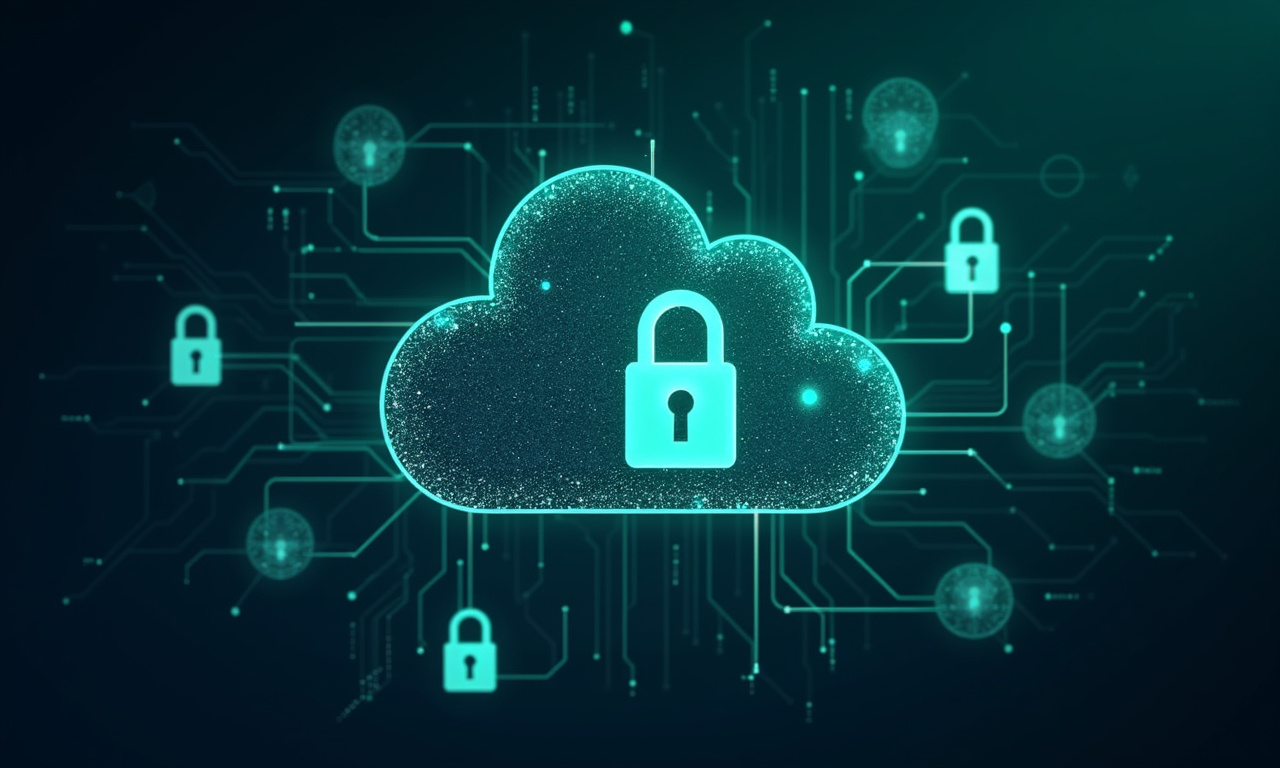
Lattica's FHE Cloud: 3 Data Points That Prove It's a Game Changer

Liu Wenjing
Lattica’s emergence from stealth with its FHE-powered cloud service isn’t just big news. The promise of querying AI models with encrypted data, without decrypting the models themselves, sounds like the holy grail for privacy-conscious industries. But is it really a game changer? Or just another overhyped tech solution? Now let’s sift through the marketing hype and get down to some cold, hard facts. I’m a hard audience to impress, and you better be too.
Performance Overhead: Is It Worth It?
FHE is notoriously computationally expensive. We’re talking 6-8 orders of magnitude slower than conventional encryption. That's the elephant in the room. To address these concerns, Lattica says to have optimized its solution, rendering it “much more practical and scalable,” in the words of co-founder Sandeep Nailwal. What does that actually mean?
"Practical" is subjective. For instance, if querying an AI model takes 10x longer with FHE vs. without, is that acceptable? Perhaps for a few niche use cases, such as doing research on super secret medical records where even the slightest chance of data breach is not allowed. For the vast majority of use cases, that kind of performance penalty is a deal-breaker.
I want to see independent benchmarks. Real numbers. Not just Lattica's internal testing. Prove it to me on realistic datasets and full complicated AI models versus best-in-class non-FHE-based PETs. Show us the latency, the computational cost, the resource utilization. And then let’s compare it to other FHE implementations. Until I’m shown that data, I’m a skeptic. This harkens me back to the early days of blockchain. It had a good deal of hype behind it, but that didn’t translate into anything impressive in terms of real-world performance.
Audits: Security Theater or Real Assurance?
Lattica will very likely cite security audits and certifications. And that's good! But it's not enough. Security audits are snapshots in time. This is because they only describe the security posture at a single point in time. They don't guarantee future security. They don’t defend against zero-day exploits or new attack vectors.
Think of it like this: a car passes a safety inspection. Does that mean it’s assured to never ever have an accident? Of course not. In the same way, a security audit can only be part of the solution.
Furthermore, who is doing the auditing? An independent, reputable firm? Or for a firm with such deep connections to Lattica? The rigor and independence of the audit will be key.
- Rigor: Is the audit comprehensive? Does it cover all aspects of the FHE implementation?
- Independence: Is the auditor free from conflicts of interest?
I want to see transparency. I’m curious what the scope of the audit was, what methodology they looked at, and what they found. I’d like to see public commitment to consistent security research and vulnerability disclosure. Because as the Goldman Sachs saying goes, even the most robust security isn’t 100 percent secure. Pretending that’s not the case is only fooling you into thinking you’re going to be successful. Even though LastPass was SOC 2 certified, the recent LastPass breach serves as a harsh reminder of this. 9
Adoption: Is Anyone Actually Using It?
This is the ultimate litmus test. All the automated testing in Bill Gates’s world won’t matter if nobody adopts the product. Relatedly, it’s user engagement that really matters. Lattica is directly aiming at healthcare, finance, and government – triad industries with the most sensitive data and most rigorous regulatory requirements. These are industries that are historically risk averse when it comes to adopting new technologies and for good reason. The stakes are incredibly high.
So is FHE being adopted by these industries at the moment? My guess is it's still relatively low. And even if Lattica’s solution truly is technically superior, it still has an uphill battle before it wins.
Which use cases in particular are demonstrating obvious benefits and return on investment? And, finally, to whom is FHE really critical, beyond just a “nice-to-have.” How big of a market opportunity is there for Lattica’s solution and who do they see as their competitors? Those are the right questions to be asking. As much as I appreciate the endorsement from Sandeep Nailwal, I would prefer to see real-world case studies and customer testimonials.
Cisco’s 2025 AI Briefing indicates that 70% of executives are concerned with their network security and user privacy when using AI. This statistic highlights Lattica’s determination to tackle these pressing issues head on.
The Unintended Consequences of Always-On Encryption
Let's play devil's advocate for a moment. So what are the dangers of successful broad FHE adoption? Increased complexity in data management, for one. Without protections, debugging and troubleshooting FHE-encrypted applications would be a perfect hell.
What of emerging attack vectors specifically aimed at FHE implementations? Hackers are incredibly resourceful. If they can’t, they’ll discover novel ways to exploit even the most secure systems.
Maybe the greatest danger is the misplaced confidence. Businesses can easily fall into the trap of thinking that just because they’re implementing FHE, their data is secure by default. But that's simply not true. FHE is just one layer of security. But it must be included as more than an afterthought in any national or homeland comprehensive approach to security strategy.
Might FHE in practice have been leveraged to obscure bad behavior? Might criminals be able to use it to encrypt their communications and avoid detection by law enforcement? These are difficult questions to contemplate, but they must be explored.
The Debate Starts Now
This is why Lattica’s FHE cloud could be a game changer. But it's not a magic bullet. Like any emerging technology, it comes with its own challenges and limitations. We need to have an open and honest debate about the future of FHE and its role in protecting data privacy.
Don't just blindly accept the hype. Demand data. Ask tough questions. And get ready to question your own thinking. The future privacy of our data rests on it. Is this really the beginning of a new age of data privacy, or merely another tech bubble on the verge of exploding? What do you think? Let's discuss.

